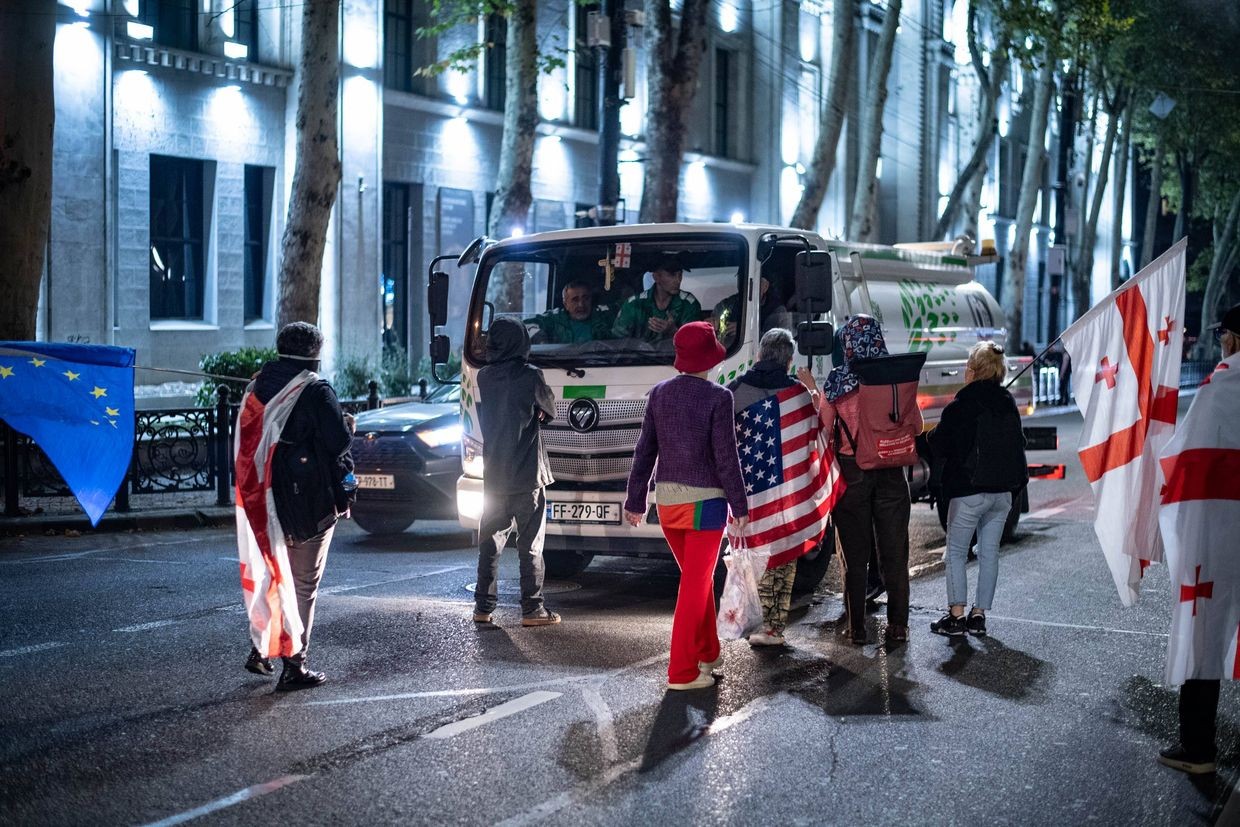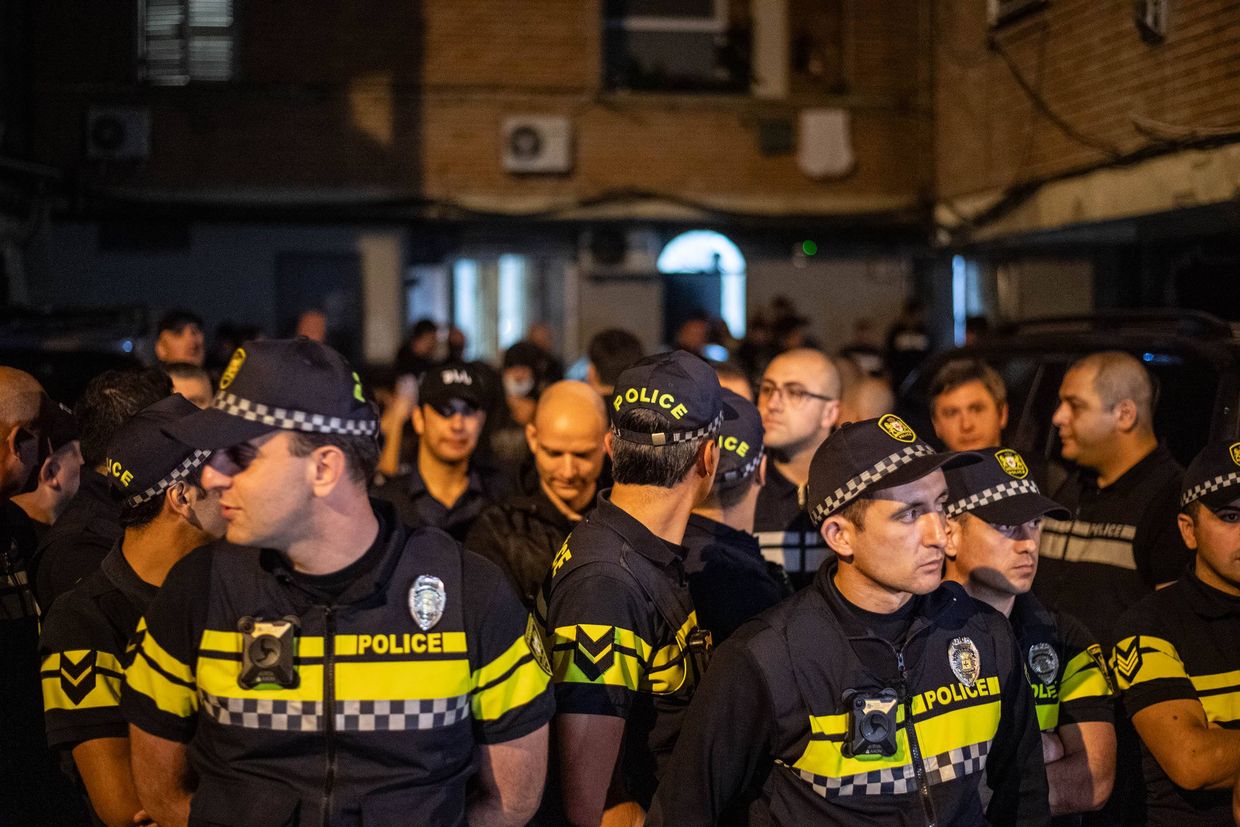Georgian Dream proposes dropping fines and increasing jail sentences over protest violations

The ruling Georgian Dream party has proposed a new bill that would tighten the already restrictive legislation governing protests by abolishing fines and introducing direct imprisonment.
The bill, which was introduced on 8 October, envisions increasing the punishment in several cases, including:
- Covering one’s face during a protest (with a mask or any other means);
- Possessing tear gas, nerve agents, or poisonous substances at a protest;
- And, partially or fully blocking a road if police decide it is unnecessary based on the number of demonstrators.
In all such cases, first-time offences will be punishable by up to 15 days of administrative detention, which previously was just an alternative measure to a fine. Repeat offences will be treated as criminal acts, punishable by up to one year in prison, and subsequent repeat offences by up to two years.
Additionally, the bill introduces up to 60 days imprisonment for those found carrying firearms, flammable substances, bladed or blunt weapons, or pyrotechnics at a protest, as well as for those who refuse to obey police orders to disperse.
The criminal code will also be amended so that insulting a police officer or disobeying their orders for a third time will result in up to one year of imprisonment, and up to two years for repeat offences, with no option of fines or alternative penalties.
The initiation of this latest restrictive legislation comes at the heels of numerous recent statements by high-level government officials downplaying the significance of the daily anti-government demonstrations, which first began on 28 November after the ruling Georgian Dream party announced it was halting Georgia’s EU integration.
Earlier in October, days after an attempt to storm the Presidential Palace on the same day as local elections, Georgian Prime Minister Irakli Kobakhidze threatened a policy of ‘zero sympathy’ against the protest movement, which he claimed is supported by ‘foreign intelligence services’.
‘When 100 people block a street: imagine, and they realise that 100 people are using violence against four million people. They realise it. If you realise that and still do it, how can you expect anyone to feel sympathy for you? Impossible — we have zero sympathy for these people’, he claimed while appearing as a guest on the pro-government TV channel Rustavi 2’s programme Night Courier.
Since 4 October, over 40 people have been detained.

Speaking to journalists on Tuesday, Kobakhidze emphasised the increased penalties associated with road-blocking, claiming that ‘fines were not fully effective’, which necessitated the new legislation, ‘so that an overwhelming minority does not impose its will on the overwhelming majority’.
This is not the first time the authorities have tried to stop people from blocking the road. In December 2024, just a month into the daily protests, President Mikheil Kavelashvili signed an amendment raising the previous administrative fine of ₾500 ($180) to ₾5,000 ($1,800). The amended legislation also provided for administrative detention of up to 15 days, though it has rarely been used.
By February, dozens of Georgians were writing on social media about receiving fines for blocking the road — today, some protesters have racked up over 70 fines. Many additionally claimed the evidence presented against them was not accurate, and a number of journalists, including OC Media’s Mariam Nikuradze were fined under this legislation despite clearly working at the time.











